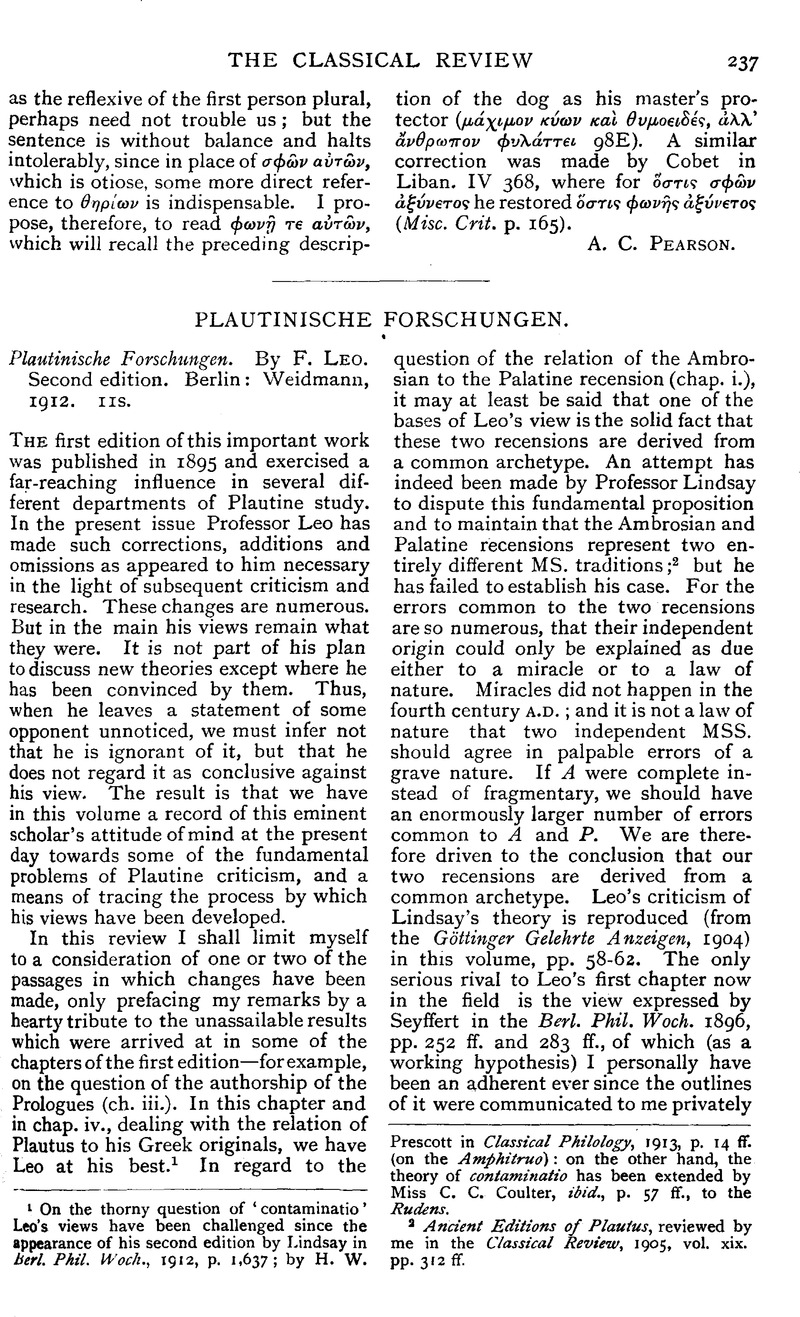No CrossRef data available.
Published online by Cambridge University Press: 27 October 2009

page 237 note 1 On the thorny question of ‘contaminatio’ Leo's views have been challenged since the appearance of his second edition by Lindsay, in berl. Phil. Woch., 1912, p. 1, 637Google Scholar; by Prescott, H. W. W. in Classical Philology, 1913, p. 14 ffGoogle Scholar. (on the Amphitruo): on the other hand, the theory of contaminatio has been extended by Miss C. C. Coulter, ibid., p. 57 ff., to the Rudens.
page 237 note 2 Ancient Editions of Plautus, reviewed by me in the Classical Review, 1905, vol. xix. pp. 312 ffGoogle Scholar.
page 238 note 1 Of course, if there were no instance of this particular word magis in which the s was necessarily sounded, the suspicion might arise that the Romans of Plautus' time always said magi or mage. But that is not the case (e.g. Asin. 162).
page 239 note 1 But I cannot accept his scansion of Trin. 658 (p. 276); for it brings an unaccented syllable into the fifth rise (the last syllable of otto). See my article on Accent and Quantity in Classical Review (1906, vol. xx., p. 156 f.)Google Scholar.